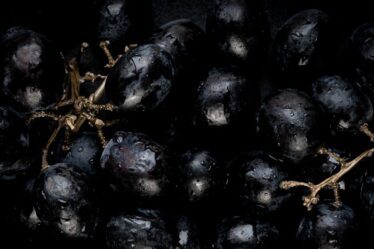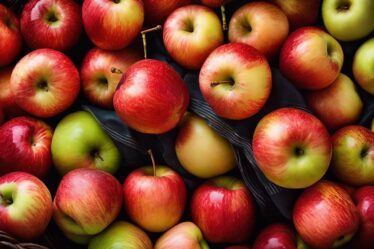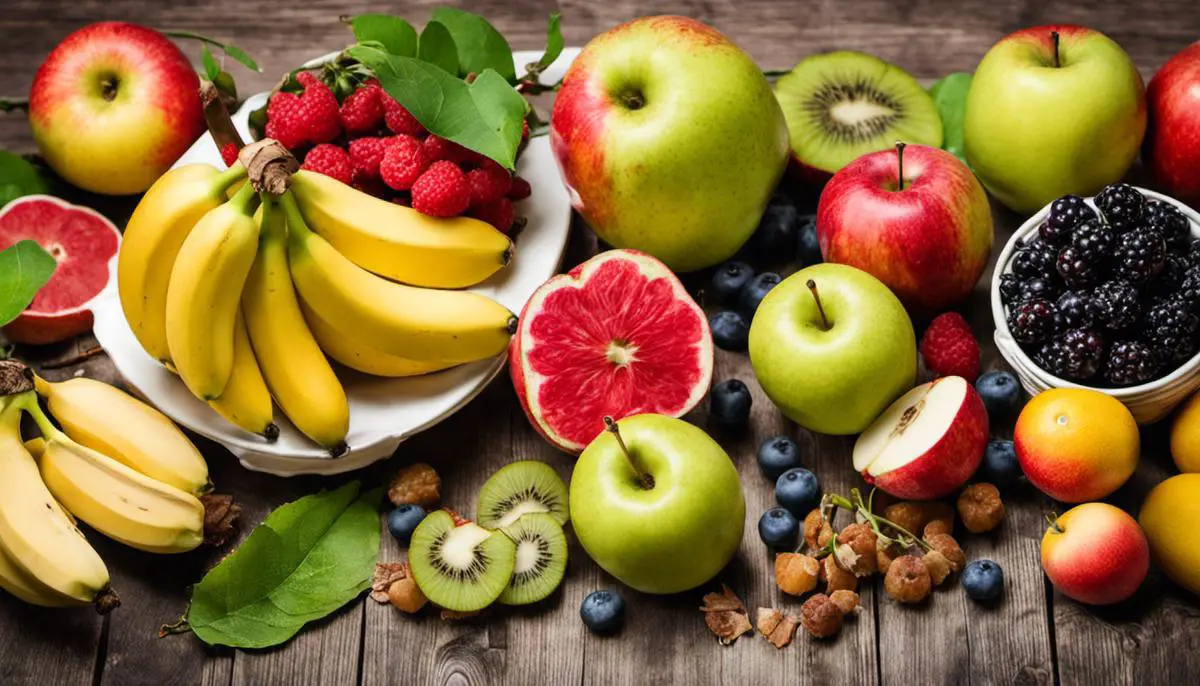
When it comes to feeding dogs, many owners wonder if it’s safe to include fruits in their pet’s diet. It’s common knowledge that dogs principally eat meat, but can they consume fruits too? The answer is yes – certain types of fruits are not only safe but also beneficial to your canine friends. From apples and bananas to various types of berries, a variety of fruits can supplement your dog’s nutrition. But it’s also crucial to understand that not all fruits are safe for dogs, as some may present potential health risks. In the following discussions, we will delve into the dorado of dog-friendly fruits, including some homemade treat recipes, and also heed the hazardous fruits that should be avoided.
Identifying Safe Fruits for Dogs
Barks and Berries: The Ultimate Guide to Safe Fruits for Dogs
Are you, or your canine friend, tired of the same old kibble day in, day out? Perhaps it’s time to introduce some fruity treats into their diet for a nutritious enhancement. But the question is – just what kind of fruits can dogs safely consume, and what should be sternly off-limits? Let’s put our Sherlock’s hat on and delve deep to find out more.
Now, just before getting underway, it’s essential to remember that just like us, our furry pals enjoy a balanced diet too. Fruits can be a great supplement for your dogs – dishing out essential vitamins and minerals that contribute to overall pet health. Yet, it’s also important to remember that not all fruits are created equal, especially for our little tail waggers.
Juicy apples are high on the list of recommended fruits dogs can enjoy. They’re full of vitamins A and C, as well as fiber, which helps with digestion. But, never forget to remove the seeds, as these can be harmful to dogs when consumed.
Another fruity favorite is bananas. They’re low in calories and high in potassium, vitamins, biotin, and fiber. However, as bananas are also high in sugar, they should be given sparingly – like a once-in-a-while treat.
Berries, like strawberries and blueberries, are ideal small snacks for dogs. Besides their bite-sized delight, they also house a handful of vitamins and minerals – reinforcing their status as a superfood! Add a couple into your dog’s meal for a fun surprise or freeze them for a refreshing summer-styled puppy pop!
Oranges, fibrous and vitamin C-packed, can be given to dogs, but in friendlier little bits. Dogs’ bodies don’t absorb vitamin C as well as ours do, so sizeable amounts can be wasteful at best and can cause upset stomachs at worst. Remember to remove the seeds and rind first, as they can be potential choking hazards.
Watermelon is another hydrating and low-calorie treat to beat the summer heat, being mostly water – just remove the seeds, and never give dogs the rind to avoid intestinal blockage.
While these fruits make for a dog-friendly treat, always remember to wash them thoroughly before serving to get rid of any lingering pesticides or harmful substances. Remember, too much of a good thing can turn sour, so portion control is key for a happy and healthy pet.
But as we explore the savory side of fruits, there are few on the ‘canine danger’ list. Grapes and raisins are an absolute no-no for dogs as they can trigger kidney failure. Avocados, due to a substance called persin, are also advised against, as the substance can make dogs sick.
With these fruity facts in hand, you’re equipped to spice up your dog’s food bowl with an array of safe, vet-approved fruits! Delighting in the visible joy as your furry friend slurps up these healthy fruits is simply heartwarming, isn’t it? Ultimately, the trek down the fruit aisle need not be an intimidating one, but rather a wholesome, tail-wagging adventure.
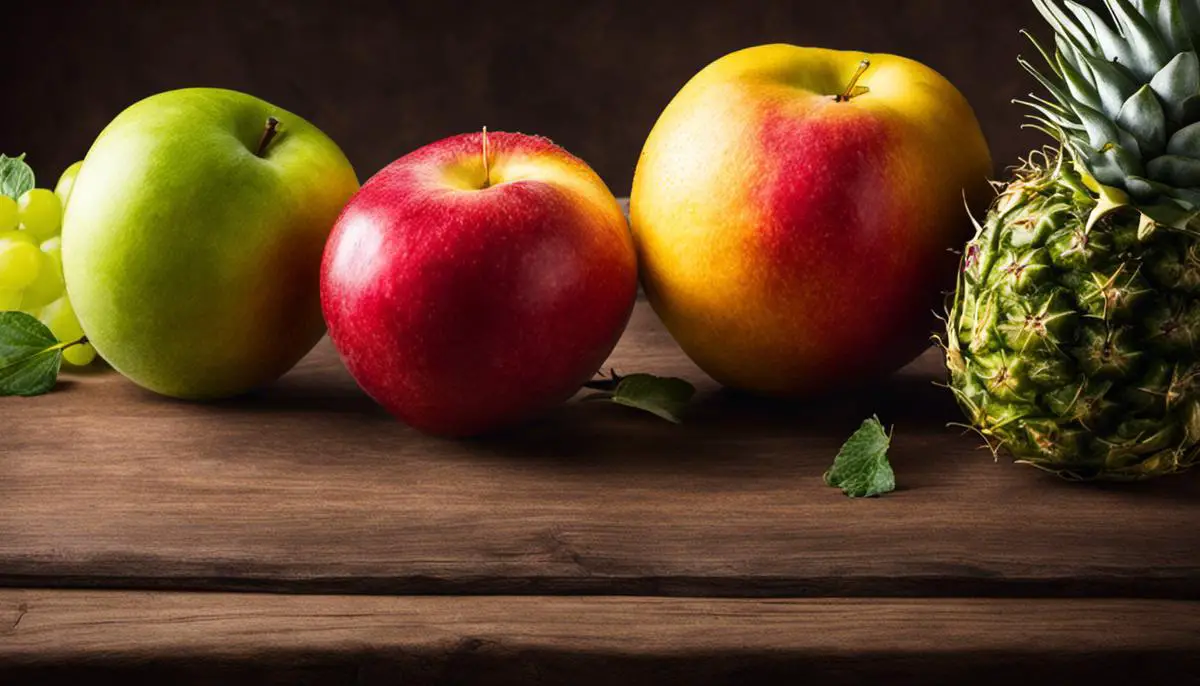
Fruit-Based Treat Recipes for Dogs
For pet parents who love to pamper their pooches with healthy yet tasty treats, our previous tips on introducing fruits into your dog’s diet must have been quite enlightening. Indeed, fruits like apples, bananas, berries, oranges, and watermelon can add a burst of essential nutrients to your furry friend’s meals while serving as delightful, low-calorie treats. But now, you might be wondering how to transform these fruit recommendations into sumptuous doggy treats? Well, the wait is over, folks. Let’s dive right into a few simple, dog-approved fruit treat recipes.
First up, we have our “Apple Crunch Pupsicles.” The crunchiness of apple slices can only be rivalled by your fur baby’s enjoyment as they excitedly chomp on them. Apart from being a robust source of vitamins A and C, pupsicles are a terrific way to ensure your dog stays cool during the hot summer months. To whip up this delightful serving, simply cut apple slices (remember to remove seeds), lay them out on a tray, and freeze them. In no time, you’ll have a refreshing treat that your pup would love to crunch on.
Next, we present our recipe for “Banana-Peanut Pup Smoothies.” This blend of banana and a small dollop of peanut butter makes for a protein-packed, nutritious treat. Remember, bananas are high in sugar and should be given in moderation. To make the pup smoothie, simply puree a ripe banana with a tablespoon of peanut butter (always use low-sodium and xylitol-free options!) and freeze the mixture in an ice cube tray. Each cube serves as a perfect bite-size snack for your canine companion.
Known for being rich in antioxidants, berries make for excellent dog treats. Our recipe for “Mixed-Berry Frozen Yogurt Bites” is packed with the wholesome goodness of strawberries and blueberries coupled with the probiotics of plain Greek yogurt. To make these bites, blend berries and yogurt in a blender, pour this mixture into a mold or ice cube tray, and freeze it. These frozen yogurt bites make for a chilled, nutritious treat for pooches, especially during hot summer days.
Finally, let’s not forget our hydration superstar – watermelon. Our “Watermelon Pup Pops” recipe is as simple as it is hydrating for your dear pup. Puree some seedless watermelon, pour the juice into a mold or an ice cube tray, and let it freeze. Please remember to avoid using the watermelon rind. One taste of these frozen delights, and your dog will surely be wagging their tail in joy!
Now, while these recipes are an excellent way of introducing fruits into your dog’s diet, it’s important to keep in mind the list of fruits you should avoid, like grapes, raisins, and avocados. Moreover, ensure that all the fruits are washed thoroughly to remove harmful substances.
So, put on your chef’s hat and get cooking! There’s nothing quite like watching the joy in your dog’s eyes as they taste these homemade, healthy treats. It’s a satisfying experience that can only be matched by the knowledge that you’re enhancing your dog’s diet and contributing to their well-being in the most loving and caring way possible.
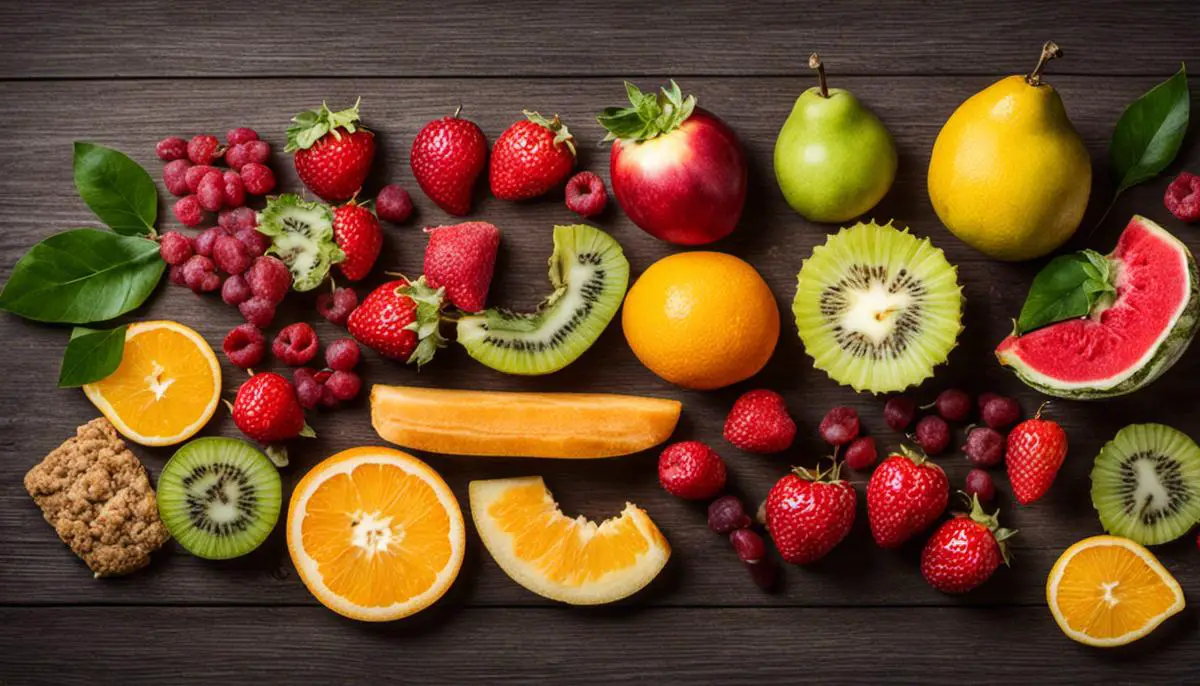
Potential Fruit Hazards and Risks for Dogs
Having established which fruits can boost your dog’s diet and how to deliciously serve up fruit-derived treats, let’s shift gears to discuss the flip side: the risks if your canine companion consumes fruit that is potentially harmful. It’s one thing to be savvy about what fruits to serve, and quite another to understand why certain fruits should be off-limits for your furry friends.
A golden rule for dog owners is: not all foods suitable for human consumption are okay for dogs. For instance, cherries seem innocuous for us, but they contain cyanide, a toxic compound that can upset a dog’s digestive system and is even potentially life-threatening if they consume high quantities. The pits also present a choking hazard or potential internal blockage.
Similarly, peaches, plums, and persimmons, while refreshing for us, have seeds or pits that can cause inflammation or obstruction in a dog’s small intestine. Worse still, peach and plum pits contain cyanide, same as cherries, which is highly toxic to dogs.
Fruits like grapes and raisins might seem like a perfect small-sized snack for a pooch, but beware. These seemingly innocent foods can lead to rapid kidney failure in dogs. The problem is that it is unknown why or how many it takes. It can vary between breeds, sizes, and individual dogs. Hence, it’s best to keep these fruits far away from your four-legged friends.
Even the healthy avocado, known as a superfood for humans, doesn’t make the cut for dogs. Despite its nutritional benefits to us, it contains persin, a toxin that can cause vomiting and diarrhea in dogs. Additionally, the large pit can become an obstruction risk, another reason to keep avocados out of a dog’s reach.
Lastly, be mindful that while fruits are healthy, they also contain sugars. So serving them in moderation is key to good doggy health. Combined with a balanced diet and regular exercise, your pupper can enjoy a fruitful life – pun intended!
In conclusion, always consult with your vet if you’re unsure about introducing a specific fruit into your dog’s diet. Your pet’s health ultimately depends on your informed decisions and loving care. As a pet-loving community, let’s remain vigilant to the potential risks, be innovative with safe alternatives, and continue spreading the love for our four-legged family members.

So, as with all facets of pet ownership, knowledge is key. Understanding what your dog can safely consume can make a significant difference in their quality of life. It’s clear that many fruits can add a welcome variety to your pet’s diet, offering everything from a useful source of fiber in apples to the multitude of vitamins found in bananas. Through creating homemade fruit-based treats, you can incorporate these nutritious foods into their diet in a fun and enjoyable manner. However, the risk of certain fruits should never be overlooked, and it’s crucial to learn to spot the signs of fruit poisoning in your pet. Armed with this information, you can ensure that your furry friend enjoys a long, healthy, and happy life full of delicious and nutritious treats.

